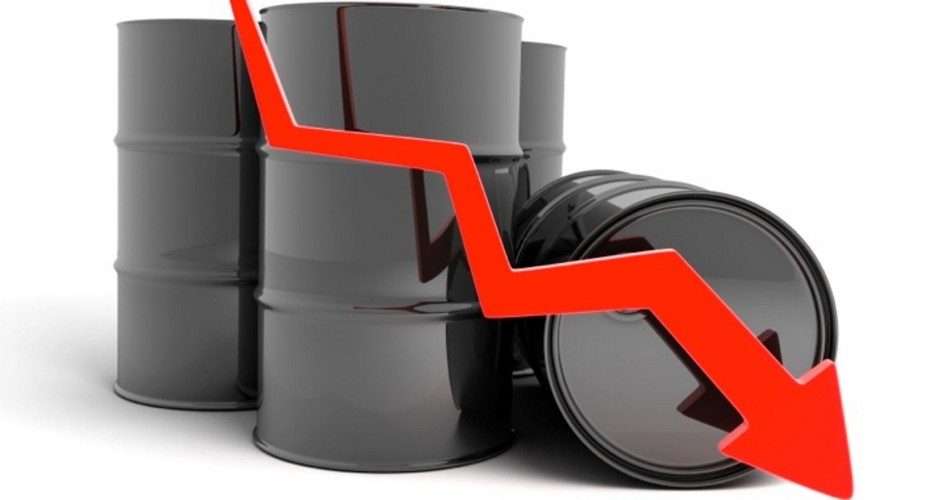
Jim Cramer, the host of CNBC’s Squawk on the Street who never had an unexpressed opinion on things financial, told his viewers on Thursday that with crude oil prices trading down close to $60 a barrel, “I could make a case for the $40s here.” He added, “I’m just saying: look out! The economy in the world is slowing, demand is slowing for oil, and we [U.S. producers] are pumping like mad.”
Cramer’s comments came before word that OPEC, Russia, and other non-OPEC oil producers are meeting this weekend in Abu Dhabi to talk about the slide in oil prices and what they collectively plan to do about it.
The turnaround in investor sentiment has been jaw-dropping. As recently as September, investors were taking long positions in crude oil futures, expecting them to reach $100 a barrel. Secretary of State Mike Pompeo helped goose those expectations by announcing that the Iranian sanctions being put in place in early November would really bite that country’s economy by removing hundreds of thousands of barrels of their oil from the world market.
Days later the State Department reconsidered and issued waivers to eight countries, allowing them to continue to purchase oil from Iran after all. That effectively cut the legs out from under those investors, who immediately reversed their positions, driving oil into a bear market.
But there are many factors that Cramer omitted from his prediction. The United States is indeed “pumping like mad,” having just hit production levels that make our country the largest oil producer in the world, ahead of Saudi Arabia and Russia for the first time. And those levels are going to increase substantially into the new year, according to the Energy Information Administration. The agency just shortened its timeframe for when it expects U.S. production to hit 12 million barrels a day from the third quarter of 2019 to the second quarter.
And Cramer appears to be correct about the potential decrease in the demand for crude oil as the world economy is showing evidence of slowing. Vitol Group, the world’s largest oil trader, revised downwards its demand forecast for the balance of 2018 and into 2019. Instead of world demand for crude oil increasing by 1.7 million barrels a day next year, it now estimates global demand dropping by 1.3 million bpd, an enormous decline by historical standards.
Cramer didn’t mention the possibility of some sort of agreement that Donald Trump and China’s communist President Xi might cobble together when they meet later on this month in Buenos Aires. And he didn’t mention that, barring any sort of substantive agreement, U.S. tariffs on existing Chinese exports will jump from 10 percent to 25 percent. And if that doesn’t bring the communists to the negotiating table, Trump has another card to play: putting tariffs on the remaining $250 billion of Chinese imports that have remained free of those earlier sanctions.
Neil Beverage, an oil analyst at Sanford Bernstein, said that “there are fears that China is about to become embroiled in a trade war with the U.S. which could push China into the biggest [economic] slowdown since the financial crisis and cripple [its] oil demand.”
Cramer didn’t reflect on what is happening in the U.S. oil patch, namely that U.S. oil producers are oblivious to world events and are producing as much oil and natural gas as they can as long as they can do so profitably. With breakeven points well below current oil prices, even at levels that are now 20-percent lower than they were a month ago, they will continue on their current tear. This makes the weekend emergency meeting in Abu Dhabi less and less relevant. If the cartel and its “non-cartel” members agree to cut production, crude oil prices will rebound, providing American producers additional incentive. If the cartel doesn’t agree, and oil prices decline further, American producers will happily continue to produce at record levels.
Those international oil producers who think they can manipulate prices to their benefit are fighting a losing battle. No matter what happens in Abu Dhabi this weekend, they will continue to lose market share to the Americans. And the world will benefit as prices inevitably work their way downward, making energy more affordable to more people everywhere.
An Ivy League graduate and former investment advisor, Bob is a regular contributor to The New American magazine and blogs frequently at LightFromTheRight.com, primarily on economics and politics. He can be reached at [email protected].
Related articles:
U.S. Officially the World’s Largest Crude Oil Producer
Crude Oil Price Rise in Wake of OPEC Agreement Likely to be Short-lived
Merrill Lynch Sees “Risk” of $100 Oil in 2019, Thanks to Iran Sanctions



